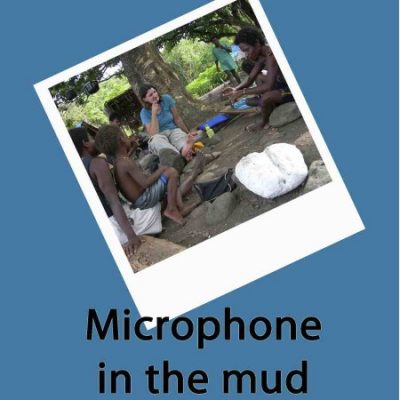‘Microphone in the Mud’ by Laura Robinson
Lingoblog continues to provide you with suggestions for your summer readings on various linguistic topics. This week we have found a book about fieldwork.
As a linguistic fieldworker you typically travel to a remote place to live with a tribe, you are adopted into the community and you learn a language in order to document and describe it. So you take on many different roles. First and foremost, you’re a linguistic researcher, trying to uncover patterns in an underdescribed or perhaps completely undescribed language. You’re also a data archivist, ethnologist, technician and administrator, just to name a few: fieldwork involves the collection and storage of high-quality data in an ethical manner, typically with ample administrative and bureaucratic hurdles to overcome.… ↪




